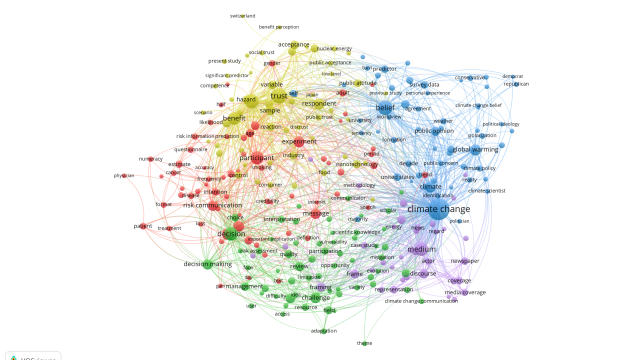Circular economy isn't enough. We need system change.
"Circular" is the buzzword of the moment in green economy circles. But does it actually mean anything?

The concept of "circular economy" isn't new: end waste & limit environmental damage through efficiency, smart design, and comprehensive recycling. But can the concept live up to the hype? Joséphine von Mitschke-Collande and Micha Narberhaus of the social innovation thinktank Smart CSOs Lab take a critical perspective on this much-promoted theory.
Since the Ellen MacArthur Foundation was launched in 2010 with the aim of popularising the idea of a "circular economy", the concept has gained momentum from policy makers, businesses and NGOs.
The aim of the circular economy is to optimise resource-use yields in the economy and, as a consequence, minimise the creation of waste. The core idea is to ‘close the entire loop’ of the production cycle (cradle-to-cradle) and maximise the recycling and re-use of material. The concept promotes new product design to facilitate such re-use and recycling, as well as new product-service models that transform the way we consume and who owns the product. (Think of standardised parts that would work in multiple products, and long-term rental contracts for washing machines and dishwashers.)
The European Commission is fostering the implementation of a Circular Economy Action Plan across Europe, and other countries, including China, have been inspired by the European initiatives to produce their own ambitious circular economy agendas. An increasing number of diverse NGOs concerned about climate change, resource depletion, and waste are promoting the concept as their vision for an ecologically sustainable economic system.
It’s clear that the Ellen MacArthur Foundation has marketed the circular economy concept very well, through high profile events such as the World Economic Forum and TED talks, all showcasing the model as a pragmatic win-win solution for everyone. Apart from the ambitious claim to solve the problem of climate change, resource depletion, and waste, the promoters of a circular economy promise economic growth and job creation.
So, is this a good thing? Or is it a false solution?
Without a doubt the circular economy and the ideas behind it could make a big difference towards an ecologically sustainable future — but only if they become part of a more comprehensive transformation of our political, economic and social systems.
But so far the idea has been championed — and is now perceived by many — as almost a magical solution: a more or less straightforward approach to tackle the global ecological crises. What seems to be forgotten is that for complex problems simple solutions do not work. Consequently, the risk of disappointment is high.
The main flaw of the concept as it is currently being promoted is that it views the world through a purely engineering lens while (ironically) ignoring the economic part of the system.
Recent research has analysed whether closing material and product loops does in fact prevent primary production. The researchers concluded that “circular economy activities can increase overall production, which can partially or fully offset their benefits”. This suggests that the circular economy carries the well-documented rebound effect known from energy efficiency strategies.
“ Circular Economy promotes the illusion that we can tackle all our ecological problems through engineering. It promises growth for business — and this is exactly the problem.”
The current approach to and narrative of the Circular Economy creates the false illusion that we can tackle all our ecological problems with an approach of technical engineering. It is clear that the strategy was designed to make it attractive for large global corporations to become partners. It promises growth for business — and this is exactly the problem. While technical solutions can result in a lower per-unit impact, overall the environmental benefits will be largely offset by economic growth.
One of the intellectual pioneers of the circular economy, architect and economist Walter Stahel, put a special emphasis on shifting the tax burden from taxing labour to taxing non-renewable resources as a way to incentivise and accelerate innovation to a circular economy and create jobs. Such a strategy could mitigate the flaws of the circular economy while offering a solution to structural unemployment. But it would make the concept unattractive for big business and is therefore not encouraged by the promoters of the circular economy.
Civil society organisations trying to identify and promote more systemic solutions to current social and ecological challenges should avoid falling into the trap of supporting and promoting the circular economy narrative as it is currently unfolding.

The environmental crises are systemically intertwined with the crises of inequality, migration and democracy. None of these crises can be adequately addressed in isolation, but the circular economy does not consider the enormous inequality inherent to financial capitalism nor the continuous democratic erosion we are experiencing as a result of the market society that we have become.
A more comprehensive analysis of the economic system and of the root causes of global crises is therefore required. It would lead to different conclusions, leverage points and strategies. A future economic system has to find solutions to the problem of economic growth and wasteful consumerism, as well as to the undemocratic power structures in the global economy. The circular economy can only become a positive contribution to a new economic system if it is embedded in a vision and narrative of a post-growth and post-neoliberal economy.
A much more critical discourse about the circular economy is urgently needed. The ideas behind the circular economy are undoubtedly important elements of the Great Transition, but the concept is consistently being promoted in isolation as a holistic framework for a new economy — which it isn’t.
Civil society organisations that want to change the system should be wary of magic win-win formulas to address our global crises. Instead they should confront the deeper issues that cannot be solved with a technical fix. The undoubtedly important concepts of the Circular Economy will only work if they are integrated into deeper and wider strategies for economic system change.
- Joséphine von Mitschke-Collande & Micha Narberhaus, Smart CSOs Lab
This article originally appeared on Smart CSOs Lab. It is reprinted with permission.
Photo by Kinson Leung on Unsplash


